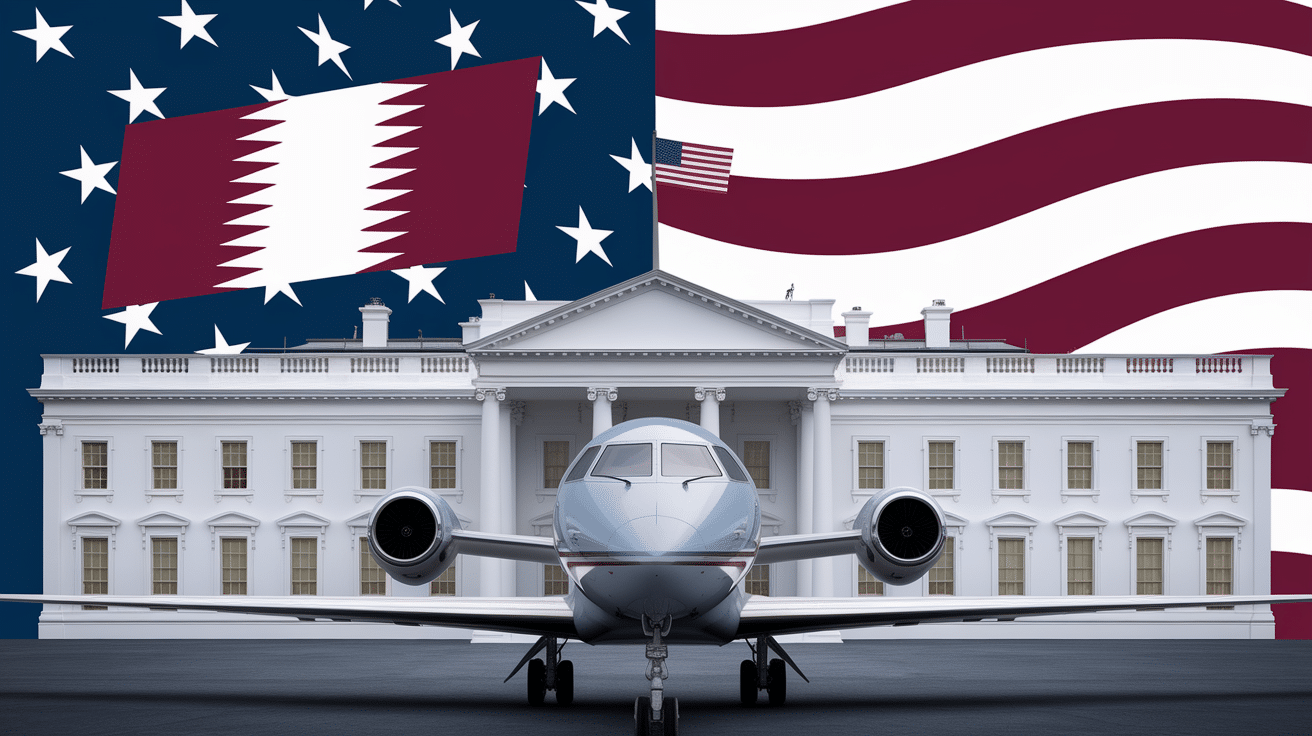Gifts given to U.S. presidents have long been subject to strict rules, with past leaders unable to keep exotic animals like lions or valuable horses due to legal and ethical concerns. Yet, you might wonder how President Trump plans to accept a luxury $400 million Boeing 747 jet from Qatar, despite constitutional emoluments clauses and potential security risks. Understanding these historical precedents and the complex legal and ethical issues involved helps you grasp why this situation raises significant questions about presidential conduct, national security, and international diplomacy.
Historical Context of Presidential Gifts
While you might think accepting gifts as president is straightforward, history shows it’s complicated. Presidents have long faced legal and ethical hurdles when foreign leaders offer lavish presents. For example, in the 1800s, President Martin Van Buren was offered live lions and horses by sultans but chose to ask Congress how to handle these unusual gifts. This set a precedent emphasizing that the Constitution requires presidential gifts from foreign states to be carefully managed and approved by your lawmakers to avoid conflicts and uphold the public trust.
Martin Van Buren’s Dilemma
With two live lions and valuable horses offered by foreign sultans, Van Buren found himself in an unexpected predicament. Understanding that accepting such gifts could violate laws and constitutional mandates, he did what you should—he reached out to Congress. His choice to seek permission highlighted the responsibility presidents have to navigate gifts carefully, balancing personal honor with legal and ethical obligations in office.
Congressional Response
Response from Congress underscored the importance of limiting presidential gifts. They ruled the lions were unacceptable for personal use and redirected them to a zoo, while the horses were sold. Van Buren’s pearls now reside in the Smithsonian, showing how Congress ensures such gifts serve the public interest, not private gain, which is a boundary you must also respect to uphold transparency and avoid conflicts with foreign entities.
It’s important for you to recognize that Congress’s involvement serves as a guardian against potential abuse of presidential office through foreign gifts. By requiring formal approval, Congress prevents presidents from personally benefiting—financially or otherwise—from foreign states. This process maintains the integrity of your office and prevents any foreign influence from undermining national interests, a principle that remains highly relevant when you consider offers like the proposed $400 million jet from Qatar.
Legal Implications of Accepting Gifts
Clearly, accepting a lavish gift like a $400 million jet from a foreign nation raises significant legal questions you must consider. The Constitution requires presidents to seek Congress’s approval before accepting any present or emolument from a foreign power. Past presidents like Martin Van Buren followed this process, sending gifts such as lions and horses to Congress, which prohibited their direct acceptance. If you think about it, bypassing this step could be viewed as violating established constitutional rules designed to prevent undue foreign influence.
The Emoluments Clause
One of the key legal barriers here is the Emoluments Clause in the Constitution, which explicitly forbids any federal officeholder from accepting gifts or payments from foreign kings or states without Congressional consent. This clause was designed to safeguard your presidency from potential foreign influence or corruption, making it very clear that no foreign gift, no matter how generous, is free of legal oversight or approval.
Trump’s Legal Justifications
Behind President Trump’s willingness to accept the jet lies a belief that legal hurdles can be avoided if the gift is routed through the Pentagon. He suggested that if Qatar donates the plane directly to the Defense Department, that might clear the way legally. Additionally, Trump’s administration cited a Supreme Court decision that granted presidents certain immunities, which he believes gives him leeway to accept such gifts without violating the Emoluments Clause.
Indeed, while you may see these justifications as clever, they do not erase the constitutional requirement to seek Congressional consent. The Supreme Court declined to clarify emoluments issues during Trump’s term, leaving the legal uncertainties unresolved. Furthermore, relying on the Pentagon as a recipient doesn’t change the fact that the gift originates from a foreign government, which raises serious legal and ethical concerns about foreign influence and personal gain during your tenure as president.
Ethical Concerns Surrounding Foreign Gifts
Some gifts from foreign governments to the president raise serious ethical questions about where the president’s interests lie. Accepting a luxury jet from Qatar, for example, risks blending personal gain with public duty, just as experts warn against. This overlap can erode trust in your leadership and fuel suspicions that your decisions might favor foreign benefactors rather than the United States. Ethical standards have long required presidents to avoid such conflicts to maintain integrity in office.
Presidential Conflicts of Interest
Below the surface, accepting extravagant gifts can create direct conflicts between your private business interests and public responsibilities. When your family’s businesses are expanding in the Middle East—as with Trump-branded golf courses and real estate deals—these connections may influence how you handle diplomatic relations and policy, potentially putting your own gain above the nation’s welfare.
Public Perception
Perception is key when leading the nation, and gifts like a $400 million jet from a foreign government will always raise eyebrows. Even if no official favors are granted, your actions will be scrutinized and questioned, making it harder for the public to trust your motivations and decisions.
For instance, accepting such a lavish gift from Qatar while your businesses grow in the region invites suspicion of hidden deals and biased policymaking. This perception alone can damage your reputation and make it difficult for people to believe that your presidency is acting solely in America’s interest, reflecting poorly on your legacy and leadership.
National Security Risks
Unlike previous gifts such as lions or horses, accepting a foreign-controlled jet poses significant risks to national security. You must consider that a luxury plane from Qatar, used and controlled by another government, may harbor hidden vulnerabilities that could threaten the safety of the president. The layers of protection around Air Force One are designed to keep you secure, and introducing an aircraft with a foreign history puts that security in question.
Trust in Foreign-Controlled Aircraft
On a practical level, trusting a plane with a foreign government’s operational history is highly problematic. You cannot be certain it hasn’t been compromised through eavesdropping devices, tracking systems, or cyber vulnerabilities. This makes the idea of relying on a jet gifted by Qatar for presidential use hard to accept from a security perspective.
Security Measures on Air Force One
Among the many stringent measures you rely on, Air Force One is equipped with top-secret technologies to ensure your safety and secure communication. Each layer, from physical protection to cybersecurity protocols, is built to create a fortress in the sky. Allowing a foreign-controlled jet into this system would disrupt these defenses and potentially expose you to unknown risks.
Risks increase exponentially because Air Force One must be impervious to sabotage, surveillance, and interception attempts. The plane gifted by Qatar would need to be almost completely stripped down and rebuilt to meet these standards, a monumental task that still may not guarantee full security. For your protection, only aircraft designed and maintained under strict US government supervision can meet these stringent requirements.

Financial Ramifications for Trump
Your acceptance of a $400 million luxury jet from Qatar could deeply entangle your personal finances with your presidency, raising serious conflicts of interest. Such a gift offers substantial advantages for your businesses abroad, especially in the Middle East, while simultaneously exposing you to ongoing criticism about mixing public duties with private gain. This could impact not only your reputation but also invite scrutiny over decisions influenced by foreign benefactors, potentially affecting your ability to govern impartially.
Business Interests in the Middle East
With your businesses expanding aggressively in the Middle East, including a Trump-branded golf course in Qatar and skyscraper projects in Saudi Arabia, accepting the jet risks highlighting a direct link between your commercial ventures and your role as president. This overlap fuels ethical concerns about whether official actions might benefit your private holdings, complicating the perception of your leadership both domestically and internationally.
Potential Benefits from the Jet
Behind the purchase of a brand-new Air Force One still facing delays and cost overruns, accepting Qatar’s luxury jet could offer short-term operational benefits for your administration. It may serve as a temporary replacement, potentially saving taxpayer dollars and symbolizing goodwill with a strategically important ally. However, these benefits come alongside serious legal and security risks that could overshadow any perceived advantage.
Indeed, while the jet might provide a cost-effective interim solution, the security concerns raised by experts are profound. The plane’s history under foreign government control presents unprecedented risks of eavesdropping, cyber vulnerabilities, and sabotage. Your decision to accept this gift must weigh these dangerous counterintelligence implications against the convenience of an available, expensive asset, all while factoring in the potential impact on your presidency’s integrity.
Bipartisan Criticism of the Proposal
For many, the idea of accepting a $400 million jet from Qatar is alarming and has sparked bipartisan criticism. You’ll find concerns from both sides of the aisle questioning the ethics, legality, and national security risks of such a gift. Critics emphasize that past presidents refrained from accepting valuable gifts like lions or horses, so accepting a luxury jet raises serious questions about your expectation of presidential conduct and foreign influence.
Responses from Republican Leaders
With some Republicans, like former House Speaker Kevin McCarthy, openly opposing the plan, the message is clear: America should build and afford its own Air Force One without relying on foreign generosity. You should note that even within Trump’s party, there is hesitancy about accepting such a significant foreign gift, highlighting concerns about sovereignty and appearance of impropriety.
Democratic Concerns
To Democrats, this proposal is seen as another example of using the presidency for personal gain, with fears that accepting the Qatar jet could influence official decisions. They argue that the president must act solely in the interest of the United States, not on behalf of any foreign country, raising your awareness of the risks to public trust and national integrity.
Also, Democrats stress the intersection of your personal business interests and this foreign gift, which may complicate policy decisions regarding the Middle East, where Trump’s companies are expanding. The situation carries ethical and legal implications that may undermine your ability to govern impartially, keeping you alert to ongoing debates over presidential emoluments and conflicts of interest.
Conclusion
So, when past presidents couldn’t keep gifts like lions or horses without involving Congress, you might wonder how your president could accept a luxury jet from Qatar. This gift raises serious legal and ethical questions, suggesting your leader’s actions may bypass established constitutional protocols. As someone concerned with governance, you should be aware that accepting such a gift without proper oversight could undermine trust in your government and blur the lines between personal gain and public duty.

